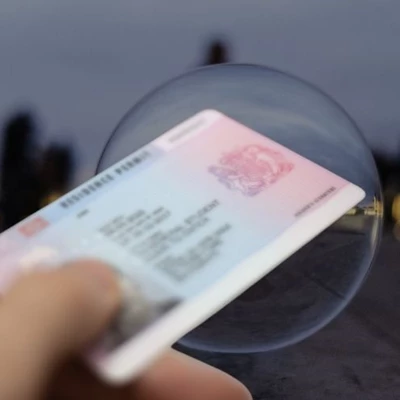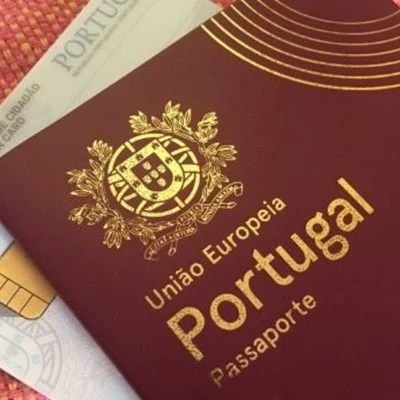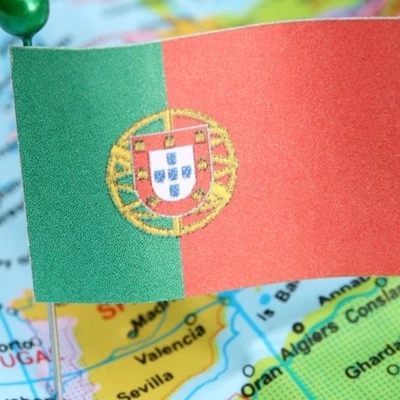
Visa for Portugal: How to live in the country in 2024

What are the types of visa for Portugal?
There are four categories of visa for Portugal, which depend on the length of the intended time spent in the country.
The types of visa are as follows:
- For Transit or Airport Stopover: Visas for those making a stopover in Portugal, heading to another country;
- Tourist or Schengen: for those who go to Portugal for tourism or business for a short period, up to 90 days;
- Temporary Stay Visa: intended for all those who will go to Portugal to carry out activities whose stay does not exceed one year;
- Residence or Long-Stay Visas: intended for stays of more than one year.
*Brazilians do not need to ask for the first two types.
Visas are requested before arriving in Portugal.
Residence Visas for Portugal (long term)
Long-term Residence Visas for Portugal are requested for periods equal to or greater than one year.
D1 – Visa to work in Portugal
This residence visa for Portugal is for those who are going to carry out a subordinate professional activity. Therefore, it will be important to prove that you have a promise or employment contract to work in the country.
This visa refers to subordinate professional activities. It is worth mentioning that there are other types of visas related to professional practice in Portugal.
This would be the case, for example, of a self-employed person or entrepreneur who wanted to go to work in Portugal. In such a situation, the person concerned would not be subordinate to any employer.
D2 – Visa for Entrepreneur as self-employed or for opening a company
This is the proper visa for those who wish to carry out professional activity in Portugal, but autonomously, for a period of more than one year. It is also the visa indicated for those who want to open a company in the country.
For those who intend to undertake, it is necessary to evaluate the possibilities of the Portuguese market, since it is necessary to demonstrate that the company has economic and social relevance for the country.
The entrepreneur visa is also useful for those who already have their own business in Brazil and would like to continue working in the field in Portugal. In fact, this is an incredible opportunity to expand your business to Europe.
To apply for a D2 visa, it is not necessary to have a minimum share capital for the company that will be created. Of course, this depends on the type of business you choose. However, you will need to demonstrate that the business will be real and possible to execute.
D3 – Visa for Research or Highly Skilled Activity
This visa for Portugal is similar to the temporary visa mentioned above (E4), of the same type. But, it is applicable for researchers or professors who wish to develop their activity for more than one year in Portugal.
Quite objectively, the Portuguese Foreigners Law defines that the D3 Portugal Visa for a highly qualified professional, as an activity to be carried out, requires specialized technical skills, of an exceptional nature or an appropriate qualification for the respective exercise.
It is worth mentioning that when applying for the D3 Portugal visa, a very detailed analysis of your situation will be carried out, to see if you can be classified as a highly qualified professional, according to the legal criteria of Portugal and the European Commission.
D4 – Study, Internship and Volunteering Visa
Likewise, this visa for Portugal is aimed at those who will carry out some educational training (undergraduate, master's, doctorate), an internship or volunteer work for a period of more than one year.
This is a great opportunity for Brazilians who intend to study in Portugal with the aim of improving their resume, and consequently, increasing the chances of getting an ideal job.
In addition to the basic documentation required for the D4 visa, you must present proof of the activity you are going to do. For example, if you are accepted into a Portuguese university, you must submit the institution's acceptance letter
D5 – Study/Mobility Visa (for those who are already in Europe)
This long-stay visa is designed for those who are not nationals of a European Union country, but who are already in Europe studying. Thus, this visa will allow mobility and for the interested party to also undertake training in Portugal.
This visa is intended for students who have been taking a higher education course in Europe for less than 2 years and want to transfer their studies to Portugal or continue in a similar program in the Portuguese country.
The D5 visa application must be made at one of the Portuguese Consulates around the world.
D6 – Visa for Family Reunification
The reunification visa is applicable to family members of holders of a visa or residence permit for Portugal. The goal is to make it possible for the family to be reunited in the country.
Family reunification works as follows: a person who obtains a residence permit to live in Portugal (whether for study, work, investment, etc.) has the right to reunite close family members or those under their responsibility.
After making the request and being granted, family members are also allowed to live in the country and can even work if they wish.
There are a number of necessary documents that must be submitted, according to each specific case. Among them, the main one would be proof that the foreign citizen has sufficient means of subsistence to meet the needs of the family.
D7 – Visa for Retirees or Income Holders
This residence visa for Portugal is highly requested by Brazilians. It is designed for those who are already retired or have enough income to support themselves without working in Portugal. This income can come from royalties, rents received, company profits and dividends, financial investment, etc.
It was created to encourage and attract people to Portugal who already have a guaranteed monthly income. In this way, those who get the D7 visa to come and live in the country help in the movement of the local economy and in the generation of income or jobs.
The visa covers several possibilities, as long as the fulfillment of the required requirements is proven, including the minimum annual amount, with the presentation of the appropriate documentation.
In addition, to make the request, the applicant must prove sufficient and disposable income to live in Portugal.
Gallery
- Palsul-Group wishes all customers and suppliers a happy Easter.
- Retraite Dorée au Portugal - Real Estate Mediation, informs you about the Months for paying IMI and what fees apply to owners.
- Retraite Dorée Au Portugal informs customers of the established IPTU values for 2025!
- Another Sardine Festival in the riverside area Palsul Group informs residents and foreigners who are in the Algarve not to be missed!
- QUINTA AO LUAR - PALSUL GROUP INFORMS RESIDENTS AND TOURISTS
- Visa for Portugal: How to live in the country in 2024





